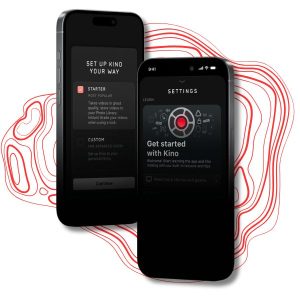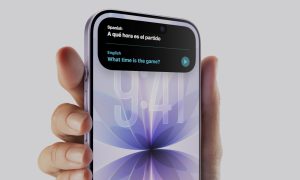Carnegie Mellon to form “living lab” of internet of things through Google initiative

Carnegie Mellon University will receive Google funds to create a campus playground of cheap sensors and user-developed apps to innovate in the Internet of Things, such as an app sensing when a user is at a bus stop (Credit: Carnegie Mellon University)
Image Gallery (2 images)
When Google proposed its Open Web of Things initiative last December, it was seeking to increase interoperability, security, and an elegant user interface in the global movement towards connected smart devices. The company has awarded half a million dollars towards Carnegie Mellon University to develop its campus and eventually Pittsburg, PA into a “living lab” of cheap and ubiquitous sensors, integrated apps, and user-developed tools to work towards Google’s vision of an integrated machine future.
Carnegie Mellon is home to the Human-Computer Interaction Institute, where Anind Dey’s team has already developed apps like Snap2It, which lets users connect to printers and other shared resources by taking pictures of the device, and Impromptu, which offers relevant temporary shared apps only when needed, like while at a bus stop.
Cornell, Stanford, and the University of Illinois at Urbana-Champaign were chosen as partners for their approaches to security, systems, and interfaces, and will work together with Carnegie Mellon researchers to develop the project, code-named GIoTTo. In this way, this project might be seen as similar to the way the internet (of not things) first found common protocols and heavy usage as a foundling on college campuses in the 1970s.
Dey sees the project as succeeding with massive amounts of cheap sensors to elevate “dumb” objects on campus to sources of information. He also plans on tools that allow end users to easily create their own IoT scripts, perhaps in the same way that tools like IFTTT facilitate non-technical users in manipulating purely digital information.
With the heavy focus on digitally integrating all of campus and eventually Pittsburgh, privacy and security is not being overlooked. Another Carnegie Mellon lab will join the project to create a privacy assistant to help users retain control of their data.
By recruiting students and staff to create their own scripts that make use of the quantity of data being generated on campus, the researchers hope to fulfill the “living lab” element of the proposal, where the understanding of open IoT systems evolves and increases innovation and adoption.
Previous projects by Dey include mining sensor data, from things such as eye trackers, to create a machine-learning system for developing better user experiences and building systems that allow users to interact with devices without the burden of learning coding.












